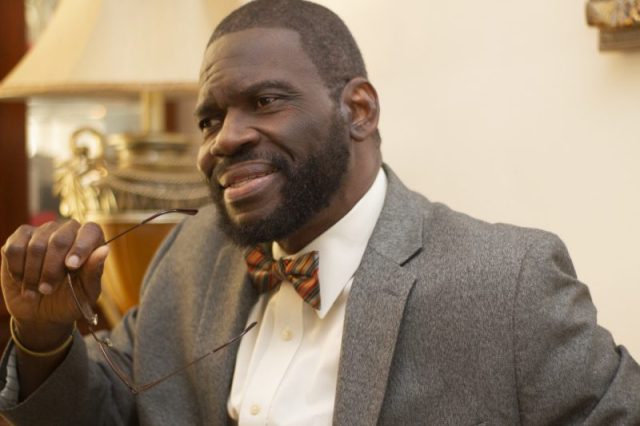Buhari Will See Himself As A Public Officer If Nigeria Were Not An … – Opinion Nigeria
Only in an unusual place like Nigeria will the head of the executive branch of government and public services for the Nigerian people deny being a public officer.
In Nigeria, we hold elections for many public offices, including the president. A long time ago, Nigeria drifted from traditional ways of authority to the British parliamentary system and the American presidential system. Today, while we say the country operates as a presidential system, which it has haphazardly and blindly embraced, we cannot say the country is practicing a true system of government.
As what is being practiced is really not a constitutional democracy, this is because Nigeria’s presidential system of government is continuously punctuated with issues of religion, ethnicity, and strongmanism.
Nevertheless, if Nigeria says it stands out as a presidential system of government, President Muhammadu Buhari works for the Federal Government and chiefly oversees the executive operation of the civil service and government agencies. Then he remains a public officer.
Buhari is vested with the power of the Executive Branch as head of state and commander-in-chief of the armed forces and, above all, remains the principal government officer.
Telling a Federal High Court sitting in Abuja that he is not required to obtain the recommendation or referral of a medical board before proceeding on foreign medical treatment because he is not a public officer of the government will certainly confuse a Nigerian social studies pupil.
An Abuja-based lawyer, Vincent Adodo, has rightly asserted, from the point of view of public service practices and rules, that Buhari is a public officer of the Government of the Federation and therefore should comply with Section 46 of the National Health Act, which provides that:
“Without prejudice to the right of any Nigerian to seek medical check-up, investigation or treatment anywhere outside Nigeria, no public officer of the Government of the Federation or any part thereof shall be sponsored for check -up, investigation or treatment abroad at public expense except in exceptional cases on the recommendation and referral by the medical board and which recommendation or referral shall be duly approved by the Minister or the commissioner as the case may be.”
In fact, Buhari should be bound by moral, ethical, and commonsense reasons to require the official blessings of the medical board before embarking on an overseas trip. The president can follow the law quietly, and as head of the federal government, having the medical travel approved by the Minister of Health before embarking on the medical trips away is a show of a civil servant who took an oath to obey the law and is doing exactly that.
No one will accuse the president of insubordination if he refuses to allow the Minister of Health to sign off his papers before embarking on the medical trip; it is just a matter of dedication to the law and being a good role model to all public service workers.
In a country where judicial officers of the judicial system are known to sometimes live in fear and where some judges compromise their oath of office due to fear or compromise, let’s wait to see what the hearing judge, Hon. Justice J.K. Omotosho, will conclude.
President Buhari, presidents are not kings; stop putting Nigerian judges in uncomfortably awkward situations, and while we wait for the interpretation of the law, I hope the judge correctly rules that Buhari is not above the law. President Buhari, with some weeks to leave public service, the next time you travel for more medical follow-up in Britain, the Middle East, or any other outside nation with good medical facilities, do what is right by obeying the rule of law through careful obedience. Let’s wish Buhari good health so there will be no need to travel to Oyibo or another country before leaving office in May 2023.

Professor John Egbeazien Oshodi, who was born in Uromi, Edo State, Nigeria, to a father who served in the Nigeria police for 37 years, is an American-based police and prison scientist and forensic, clinical, and legal psychologist. A government consultant on matters of forensic-clinical adult and child psychological services in the USA; chief educator and clinician at the Transatlantic Enrichment and Refresher Institute, an online lifelong center for personal, professional, and career development; and a former interim associate dean and assistant professor at Broward College, Florida. The Founder of the Dr. John Egbeazien Oshodi Foundation, Center for Psychological Health and Behavioral Change in African Settings A former Secretary-General of the Nigeria Psychological Association. In 2011, he introduced state-of-the-art forensic psychology into Nigeria through N.U.C. and Nasarawa State University, where he served in the Department of Psychology as an Associate Professor. An adjunct professor in the doctorate clinical psychology program at Nova Southeastern University’s College of Psychology in Florida, USA. A contributing faculty at the Psychology program, Walden University. Director of Online Studies and Professor of Psychology—Online Faculty at Weldios University in the Republic of Benin. He is a virtual behavioral leadership professor at ISCOM University, Republic of Benin. Founder of the proposed Transatlantic Egbeazien Open University (TEU) of Values and Ethics, a digital project of truth, ethics, and openness. Over forty academic publications and creations, at least 300 public opinion pieces on African issues, and various books have been written by him. He specializes in psycho-prescriptive writings regarding African institutional and governance issues. His most recent textbook publication is Concise Psychology: An Integrated Forensic Approach to Psychology for Global African Settings.
Post Views: 199
